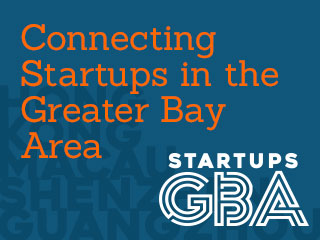Outside of building companies, reading has been one of my daily passions since I was a young child. Each year, I attempt to read more books than the previous year. This year I read 146. The following books were the five that made the most impact and immediate improvement on my performance as an entrepreneur.
Jump start your New Year at full speed by picking up a couple of these books. You will not be disappointed.
1. Your Brain at Work: Strategies for Overcoming Distraction, Regaining Focus, and Working Smarter All Day Long by David Rock
My personal theme for 2010 is ‘Return on Attention’ and I have been on a tear this past year diving deep into the latest neuroscience research. Of the 19 books I read this year on the brain, this is my overall favorite and has had the biggest overall impact on my life. Feeling like a slave to Twitter, your inbox, or daily distractions? This book has some answers and is a quick, easy read (occasionally the writing style is unnecessarily simplistic). The author does a solid job of not only helping you understand how the brain deals with certain stressful situations of daily life, but also demonstrating simple techniques to effectively improve the quality of your life. The book balances the latest neuroscience research with case studies and walkthroughs of changes you can put into practice immediately. Since reading this book in October, I have recommended it to several of friends who have all said it has changed their lives for the better.
Although most founders focus on their cash burn rate, very few focus on the burn rate of their daily time. As entrepreneurs we are constantly bombarded with streams of information from all directions and how we manage our daily time can be a big determinant in our outcomes.
2. Beautiful Data: The Stories Behind Elegant Data Solutions by Jeff Hammerbacher and Toby Segaran
Data. Data. Twitter sells stream access to Google & Bing. Big Data. Our culture is sharing more and more of our lives in real time and enterprises are focused on using data to make more informed decisions. All of us are impacted by this onslaught of data. This book provides examples and can help you understand how to leverage data to find insights and derive value. Jeff Hammerbacher’s chapter on his time at Facebook with their data team as well as Jeff Jonas and Lisa Sokol’s chapter on ‘data finding data’ are worth the price of admission alone.
3. Performance at the Limit: Business Lessons from Formula 1 Motor Racing by Mark Jenkins, Ken Pasternak, and Richard West
Formula 1 is my favorite sport. Its similarities with startups run deep and this book examines them in detail. If you are a fan of Eric Ries’ Lean Startup, think of this book as the guide to how to effectively manage the operations of your startup. What do Formula 1 and Startups have in common?
- Small teams attempting to accomplish massive tasks
- Limited budget
- Pushing the boundaries of innovation
- Metric driven performance
- Constant change
- Highly competitive environment
4. Presenting to Win: The Art of Telling Your Story by Jerry Weissman
If you are a founder, then this book may be the best $20 you will ever spend. I raised money from top tier investors for two different companies this year and this book proved invaluable in communicating each company’s story. The author, Jerry Weissman, has helped CEOs in Silicon Valley for years build presentations and communicate them effectively. This book lays out how to build effective pitches and how to present them in explicit detail. The chapters outlining how to build a presentation deck slide-by-slide are worth the cost of the book alone. This is truly a must have.
5. The Inner Game of Tennis: The Classic Guide to the Mental Side of Peak Performance by W. Timothy Gallwey
As an entrepreneur you struggle with the external “game” of dealing with co-founders, employees, investors, and customers. Perhaps even more importantly, you also deal with the internal “game” existing in your head as you fight fear, anxiety, and doubt. The roller-coaster of these two games can derail you from focusing on what is truly important and be a hinderance to success. In this book, Gallwey provides you with techniques and lessons on how to balance the two games by establishing the proper mental grounding. I cannot say enough for how this book has helped to achieve clarity in thought and focus.
Also check out Galleway’s related book: The Inner Game of Work
Bonus: I would love to hear what you read in 2009 that made a difference in your life! If you drop me a quick email ([email protected]) and share a book that has impacted your life this past year, I will email you back access to my last few years of books I read (over 300+ books).
Top 5 Books for Entrepreneurs from 2009
Online Turnkey Customer Service Systems for Start-Ups @startupshk
Today at Startup Monday we discussed Get Satisfaction – a system for doing customer service for your web service: http://www.getsatisfaction.com
The Essential Startup Reader: 10 Lessons In Entrepreneurship
As a blogger, I spend most of my time writing. But it is time spent on reading that is most satisfying. Here is a short (and by no means a complete) list of ten articles that encapsulate the art of the start-up. Most were published during 2009 and I found them educational and full of practical tips that we have applied to our business. They have also helped me think differently about start-ups and entrepreneurship. Hope you enjoy reading them as much as I did.
What Startups Are Really Like by Paul Graham: This has to be single best essay I read during 2009. Every entrepreneur should begin the startup journey with this essay. It bottles the every essence of entrepreneurship and startups, and is chockfull of practical advise and tips that are applicable to anyone who dares to dream.
Milestones to Startup Success by Sean Ellis: Sean Ellis explains the need for minimum viable product, aka MVP and then outlines how start-ups can go up his start-up pyramid to find success.
Myth: Entrepreneurship will make you rich by Eric Ries: “One of the unfortunate side effects of all the publicity and hype surrounding startups is the idea that entrepreneurship is a guaranteed path to fame and riches. It isn’t,” writes Eric in this no holds barred essay about the challenges and pitfalls of being a start-up founder.
What is the minimum viable product? By Venture Hacks: A great audio conversation on Venturehacks blog including a slide show.
The power of continuous improvement by Mike Speiser: In a guest post for us, Mike talks about the importance of metrics, feedback and how they can drive continuous improvement. Mike’s rules have found eager takers amongst our team.
Getting comfortable with People who make you uncomfortable by Mike Speiser: In this article Mike addresses the need for people who challenge conventional wisdom and make everyone around them uncomfortable. Which is why every company needs them.
The Funnel Principle: Software & Making Money by Tony Wright: It is good to build great products, but in order to build great companies one needs to have more — clear path of monetization, an attention magnet and in general excellence at things beyond product development.
Does every start-up need a Steve Jobs? by Andrew Chen: A dissection of how insanely great products are built by combining desirability, feasibility and viability. Read this post after reading Wright’s Funnel principle.
10: Startup Killer: the cost of customer acquisition by David Skok: A definitive essay on start-up business models, perils of over optimism and the importance of cost of customer acquisition. Skok is a three time entrepreneur with lifetime of experience.
Bonus Links:
Self Serving: What every entrepreneur can learn from Derek Jeter & What makes DJ tick.
Every start-up guy listen to Steve Jobs’ speech before embarking on their journey.








